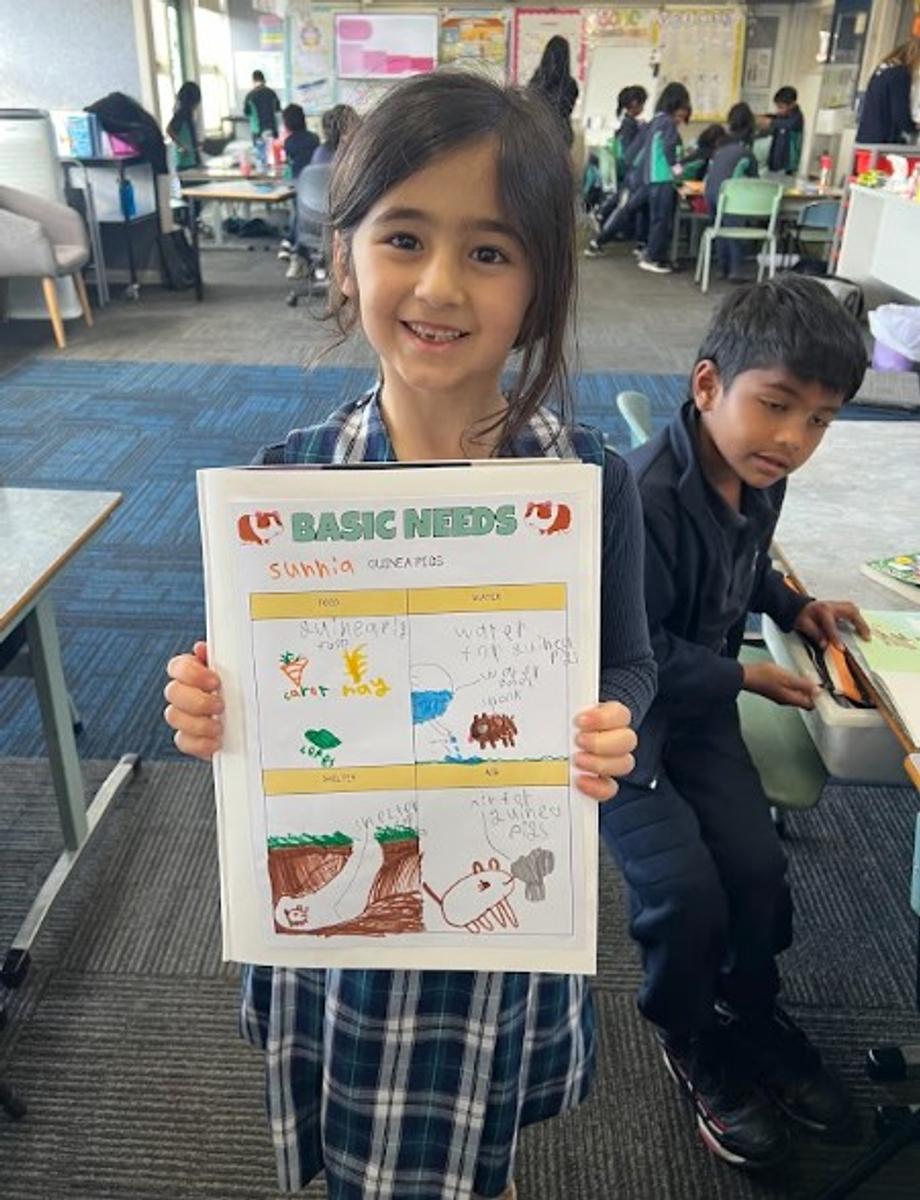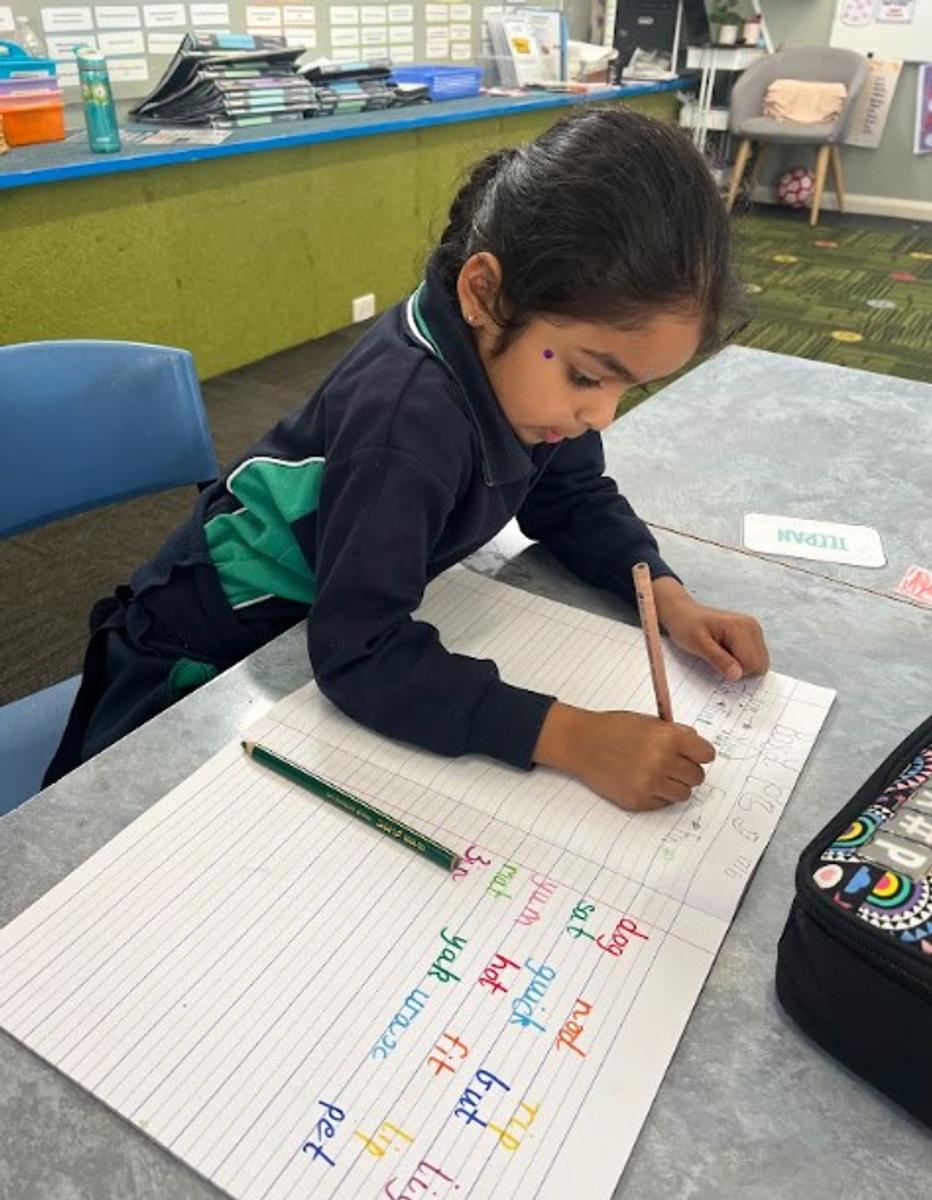1C
By Grace Farch

1C
By Grace Farch
During Term Two, 1C learners investigated the inquiry question, ‘How do my choices affect living things?’, guided by Global Goal 15: Life on Land. They explored the differences between living and non-living things, and the distinction between merely surviving and truly thriving. Through hands-on activities, including caring for a class pet, students learned about the basic needs of living organisms and the importance of empathy in making choices that affect others. They examined various characteristics of animals and plants, discussed the ethical implications of their actions, and connected their learning to personal growth and wellbeing. This unit not only fostered a deeper understanding of biological sciences but also nurtured ethical capabilities, encouraging students to reflect on their own feelings and actions in relation to the living world around them.
Below we have shared some of the interesting information we discovered:








Throughout Term Two, 1C students deepened their Emotional Literacy through the concepts of Gratitude, Empathy, and Mindfulness as part of The Resilience Project. Learners created a Gratitude Tree, highlighting various aspects of their lives for which they are thankful. They also designed their own Helpful Superhero, recognising that helping others and showing empathy makes us feel like superheroes. Additionally, students practiced mindfulness strategies, including belly breathing, mindful colouring, and yoga, emphasising the importance of being present and in the moment.






Throughout Term Two, 1C students delved into skip counting and arrays, developing their mathematical skills through a series of engaging activities. They explored skip counting by 2s, 5s, and 10s using 100s charts, manipulatives, and collaborative exercises. Building on this, they solved 'groups of' problems and connected these to multiplication concepts. Students created and described arrays, learning to differentiate between rows and columns, and applied their knowledge in a creative project by constructing an array city. Through these lessons, they enhanced their understanding of repeated addition and the relationship between equal groups and multiplication.




It has been an exciting term of writing for 1C, with learners delving into our unit on persuasive writing. We explored persuasive vocabulary within texts and began to formulate strong arguments to be transferred into a writing piece. More recently, students noticed a letter left in the classroom stating that all the glue sticks had run away! 1C investigated the cause and effect of the glue sticks leaving and decided to write a letter back to the glue sticks, persuading them to return. Thankfully, the learners’ letters were convincing enough that all the glue sticks were returned to our classroom.
In reading, learners have continued to progress through our Initial Lit Program. We have deepened our understanding of common digraphs, as well as short and long vowel sounds. We explored the concept of plurals and the addition of suffixes to words. Recently, we began learning about split digraphs and the rule of Bossy ‘E’. Through our Storybooks, learners have continued to expand their vocabulary and enhance their inferential skills to summarise, predict, and derive meaning from texts.







